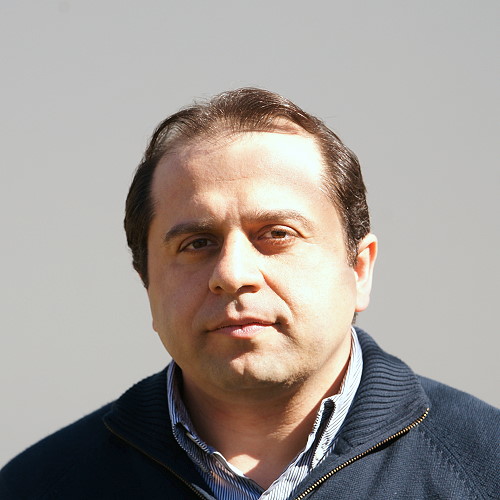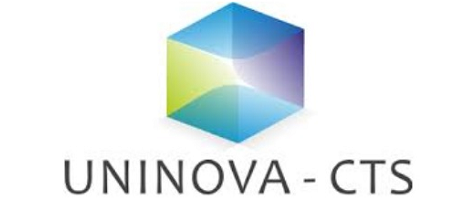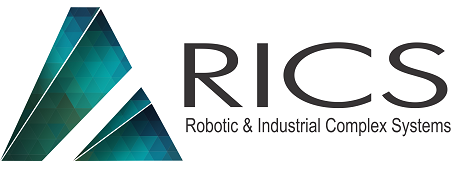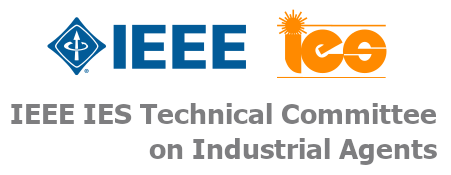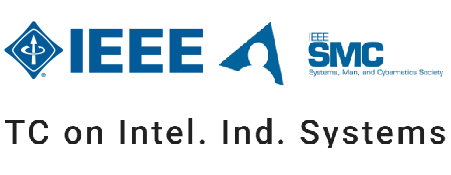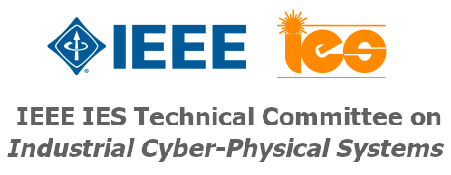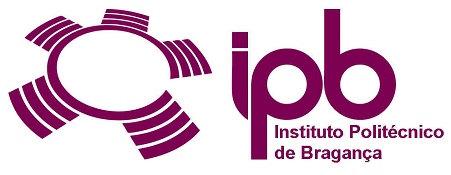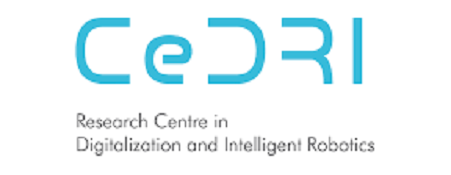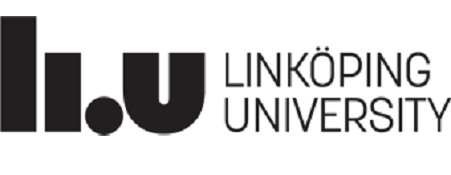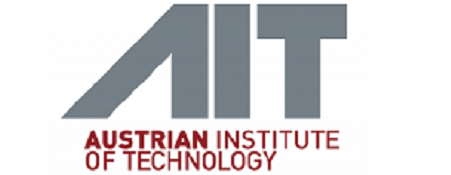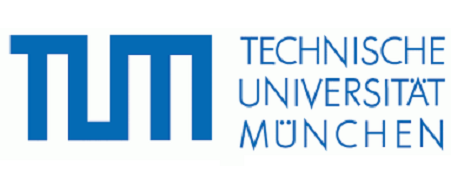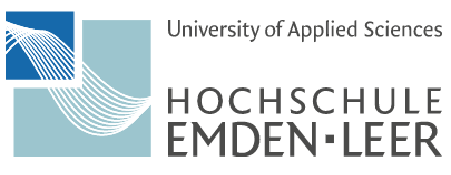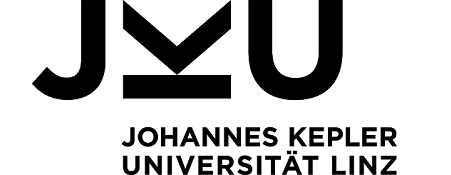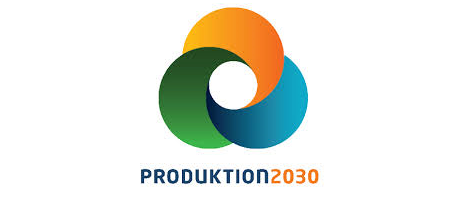The Summer School
It is our pleasure to invite you to participate in the 7th International Summer School on Industrial Agents: Embedded Intelligence within the Edge and Fog Computing, organized by UNINOVA - Center of Technology and Systems (CTS), which will take place online, on 21-25th of June 2021. The Summer School is technically co-sponsored by RICS - Robotics and Industrial Complex Systems from UNINOVA-CTS (Portugal). This event is designed to provide advanced training for PhD students and practitioners on the advanced and smart automation technologies that will be the basis for Industry 4.0, aiming to promote the discussion on how to use multi-agent systems to design, develop and implement the next generation of intelligent production system based on their cyber-physical formulation.
Objective
The summer course aims to enhance the participants' knowledge in the field of multi-agent systems (MAS) applied to industrial environments, particularly providing hands-on knowledge to develop industrial cyber-physical systems (e.g. production systems, smart grids, etc.) In particular, the main objectives of the course are:
- Introduce MAS principles as a suitable paradigm to develop industrial distributed collaborative systems.
- Provide practical competences in developing MAS applications for industrial automation applications.
- Deployment of agent-based solutions for industrial environments.
The summer course will provide a good opportunity to know people working in the field, to meet prominent researchers, share best practices and to establish contacts through social interactions that may lead to research collaborations in the future. In fact, participants will attend lecture and tutorials held by well-known experts in the field, coming from industry and academia, which will provide their experience of developing/applying agent-based solutions for industry context.
Schedule Detail
Explore our program by selecting the desired date.
-
8.30 AM - 9.00 AM (CET)
Welcome
-
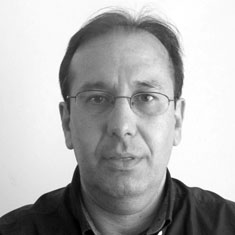
9.00 AM - 9.50 AM (CET)
Industrial Agents
By Paulo Leitão -
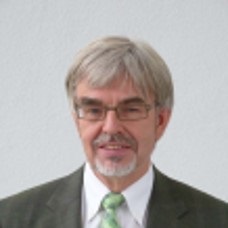
10.05 AM - 12.00 AM (CET)
Industrial Agents and My Research Direction
By Christoph Hanisch -
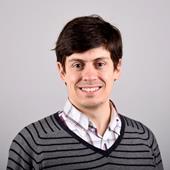
2.00 PM - 5.30 PM (CET)
Design and Assessment of Cyber-Physical Production Systems
By Luis Ribeiro
-
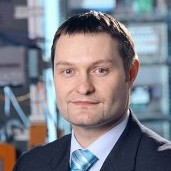
9.00 AM - 12.00 AM (CET)
Designing field agents
By Thomas Strasser
IEC 61499 -
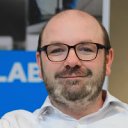
2.00 PM - 5.30 PM (CET)
Implementing Field Agents
By Alois Zoitl
4diac
-
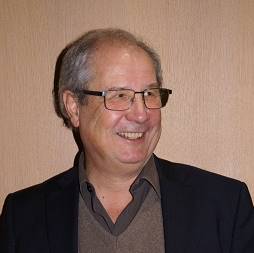
9.00 AM - 12.00 AM (CET)
Panel - Industrial Applications and Future Directions
By Friedrich Durand -
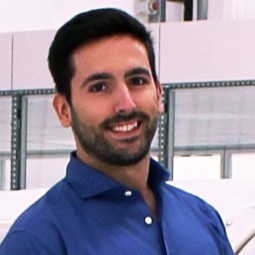
2.00 PM - 5.30 PM (CET)
Distributed Artificial Intelligence
By Ricardo Peres -
7.00 PM - 9.00 PM (CET)
Social Event
By Students
-
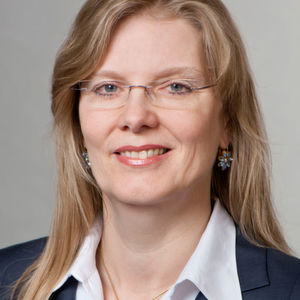
9.00 AM - 12.00 AM (CET)
Field level control agents
By Birgit Vogel-Heuser -
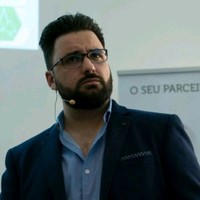
2.00 PM - 5.30 PM (CET)
Agent-based Simulation
By Andre Dionisio Rocha
-

9.00 AM - 9.50 AM (CET)
Keynote - Industrial IoT with smart & secure Edge devices
By Marcello Coppola -
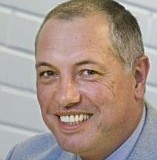
10.05 AM - 12.00 AM (CET)
Industrial Agents and RAMI 4.0
By Armando W. Colombo -
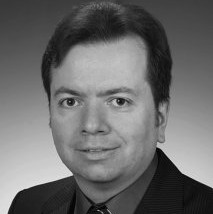
2.00 PM - 3.50 PM (CET)
Security for Cyber-Physical Systems
By Stamatis Karnouskos -
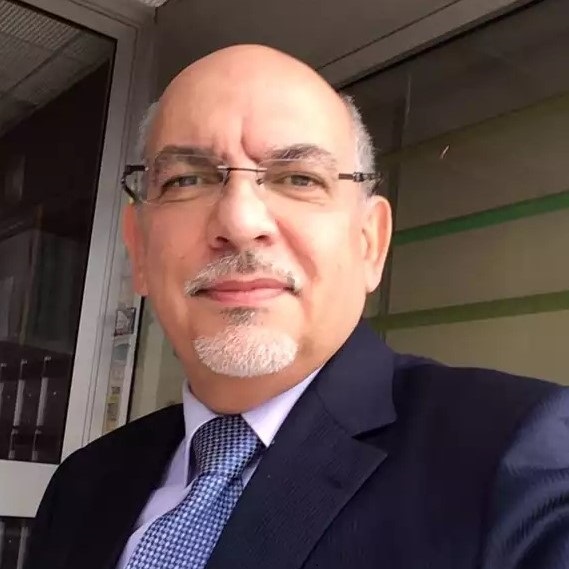
4.00 PM - 5.30 PM (CET)
Self-Organization and Industrial Agents
By José Barata -
5.30 PM - 6.00 PM (CET)
Closing Session
Our Speakers

Paulo Leitão
Paulo Leitão received the MSc and PhD degrees in Electrical and Computer Engineering, both from the University of Porto, in 1997 and 2004, respectively. He joined the Polytechnic Institute of Braganca in 1995, where he is Professor at the Department of Electrical Engineering. His research interests are in the field of intelligent and reconfigurable systems, cyber-physical systems, Internet of Things, multi-agent systems and self-organized systems. He participated in several R&D projects (e.g., EU GO0DMAN, PERFoRM, ARUM and GRACE) and Networks of Excellence (e.g. IMS and CONET), served as general co-chair of several international conferences, namely IFAC IMS'10, HoloMAS'11, IEEE ICARSC'16 and SOHOMA'16, and published more than 200 papers in international scientific journals and conference proceedings. He is co-author of three patents and received four paper awards at INCOM'06, BASYS'06, INDIN'10 and INFOCOMP'13 conferences. Dr. Leitão is Senior member of IEEE Industrial Electronics Society (IES) and Systems, Man and Cybernetics Society (SMCS), past Chair of the IEEE IES Technical Committee on Industrial Agents and member at-large of the IEEE IES Administrative Committee (AdCom). Currently he is chair of the IEEE Standards Association P2660.1 Working Group.

Christoph Hanisch
Christoph Hanisch, studied Mathematics and Physics at the University of Düsseldorf finishing with a Diplom in Pure Mathematics and a phd in Applied Physics. He did research in the field of micro magnetism, of magnetic methods for non destructive testing and of hydrogen technology. This laid the basis for his work in the research department of Festo AG & Co. KG in sensor and MEMS technology. Besides these technical topics his education comprised studies in philosophy and education and in music at the Conservatory of Music in Düsseldorf. Towards the end of his professional career at Festo before retiring he focussed on how to strengthen the human aspect in technology development and company organization. Automation needs to be rethought. He insisted that we need a change of direction as technology is only one aspect of any innovation process. We need to understand the drivers behind in order to be better prepared to use technology and its development in a context that sustains people. He worked for these ideas participating in European raodmapping exercises and developing a research strategy by the European Technology platform ManuFuture. After retiring at the end of 2015 he continued working as an independent consultant. Topic Social sustainability.

Luis Ribeiro
Luis Ribeiro is an Associate Professor in Manufacturing Engineering at The Division of Manufacturing Engineering from the Department of Management and Engineering of Linköping University, Sweden. He holds a Swedish Docent degree in Manufacturing Engineering from Linköping University and a PhD in Electrical and Computer Engineering with Specialization in Robotics and Computer Integrated Manufacturing from Universidade Nova de Lisboa. He has been involved, in different roles, in several international research projects from the 6th, 7th and H2020 European Research Programmes, and several Portuguese and Swedish national projects. These projects have focused on smart automation and plug and produce systems, for various industries including automotive, white goods and aerospace, and have explored and developed many concepts and technologies that are now considered some of the foundational ideas of the so called 4th Industrial Revolution His main research areas include: design, development and implementation of intelligent manufacturing systems based in cyber-physical components, distributed architectures to support intelligent systems and self-organization and emergence in manufacturing. His interests in these areas are in control, reconfiguration and monitoring/diagnosis. He is involved in several technical communities that are actively engaged in this research area for example the IEEE Technical Committees on: Industrial Agents, Cybernetics for Intelligent Industrial Systems and Industrial Cyber-Physical Systems. He is also a member of the expert group on flexible processes of the Swedish Production 2030 initiative and one of the leaders of the expert group in Virtual Production of the same initiative.

Thomas Strasser
Thomas Strasser received a master's and a PhD degree from Vienna University of Technology and was awarded with the venia docendi (habiliation) in the field of automation from the same university. For several years, he has been a senior scientist in the Center for Energy of the AIT Austrian Institute of Technology. His main responsibilities involve strategic development of smart grid automation and validation research projects and mentoring/supervising junior scientist and PhD candidates. Before joining AIT, Dr. Strasser spent more than 6 years as senior researcher investigating advanced and reconfigurable automation and control systems at PROFACTOR research. He is active as a senior lecturer (Privatdozent) at the Vienna University of Technology.

Alois Zoitl
Alois Zoitl holds a PhD degree in Electrical Engineering with focus on dynamic reconfiguration of real-time constrained control applications and a Master degree in Electrical Engineering with the focus on distributed industrial automation systems from Vienna University of Technology. Currently he is a Professor for cyber-physical systems for engineering and production with the Johannes Kepler University, Linz. Before that he was research group leader for Industrial Automation at the research institute fortiss GmbH in Munich, Germany. He is co-author of more than 150 publications (3 books, 6 book chapters, 19 journal articles) and the co-inventor of 4 patents in the mentioned areas. Alois Zoitl conducted and lead several industry funded R&D projects as well as coordinated and participated in several public funded (national as well as European) R&D projects. He is a founding member of the open source initiatives Eclipse 4diac, providing a complete IEC 61499 solution. Furthermore, he is a member of the IEEE, and GMA. Since 2009 he is an active member of the IEC SC65B/WG15 for the distributed automation standard IEC 61499. He was named convenor of the group in May 2015.

Friedrich Durand
Friedrich Durand obtained his Diploma in Electronic Engineering at Swiss Federal Institute of Tech-nology Zurich (ETH) in 1982. At his first position at Bührle-Contraves he worked several years in the field of military bit slice calculators (testing, bite-slice, assembler, compiler). Since then, more than 25 years, he works in the field of automation (Meto-Fer Automation Systems, SMH Automation, SWATCH Watch Assembly technologies). The last 10 years he focussed in the field of process de-velopment (laser, ecm, assembly, controllers) and product process development. His expertise lies in the field of electronic controllers (CPU, FPGA, etc., ELREST), networks of PLC’s and system archi-tecture of PLC networks in hard- and software. Under his leadership several high flexible and modular assembly solutions have been developed and brought into the field. He cooperated in the preparation of different EU and German projects (EUPASS - Evolvable Ultra Precision Assembly Systems, Dis-met, Polyweld, SLAPS I & II, DEVEKOS) and worked in the EU projects Claw and Assembly-Net - Thematic Network on Assembly Technology. He was member of the EC project CLAW, IDEAS and works actually for the German project OPAK and for the EU project OpenMOS. Current research developments in the configuration of mechatronic physical and virtual systems. The Skill-based ap-proach and the integration of agent technology in this environment.

Ricardo Peres
Ricardo Silva Peres received the M.Sc. and Ph.D. degrees in electrical and computer engineering with a focus on the application of AI in smart manufacturing from the NOVA University of Lisbon, Portugal, in 2015 and 2019, respectively. He is currently an Invited Professor with the Department of Electrical Engineering, School of Science and Technology, NOVA University of Lisbon. Since 2014, he has been a Researcher with the Centre of Technology and Systems, UNINOVA Instituto Desenvolvimento de Novas Tecnologias, focusing on the development of intelligent and predictive manufacturing systems. He has participated in several national and international research projects, including FP7 PRIME, H2020 PERFoRM, H2020 OpenMOS, H2020 GO0D MAN, and H2020 AVANGARD. He has authored several publications in high-ranked international scientific journals and conference proceedings (peer reviewed). His research interests include predictive manufacturing, AI, cyber-physical systems, and multi-agent systems. He has been a member of the IEEE IES Technical Committee on Industrial Agents since 2018 and the IEEE Standards Association P2805.1/2/3 Edge Computing Nodes Working Group since 2019.(Based on document published on 7 December 2020).

Birgit Vogel-Heuser
Professor Vogel-Heuser (b. 1961) conducts research on the development and system evolution of distributed intelligent embedded systems in mechatronic products and production systems, with the aim of improving product quality, the efficiency and consistency of engineering activities and operational availability. She develops methods, descriptive aids and tools for integrating the various perspectives of mechatronic systems (mechanical, electrical/electronic and software) and phases in the life cycle and their interactions. Key non-functional requirements are real-time behavior, modularity, availability and usability. Her research projects range from fundamental research in automation technology to the derivation of requirements from industrial applications and the development of prototype tools. After graduating in electrical engineering from the Technical University of Aachen (RWTH), Prof. Vogel-Heuser earned her doctorate degree there (1990) in the area of robot programming in mechanical engineering. She acquired industrial experience over a ten year period, including a position as Engineering Director for the Siempelkamp Group (systems engineering). After various professorships (Hagen 1996; Wuppertal 2000; Kassel 2006), she assumed a professorship in the Department of Automation and Information Systems (formerly: Department of Information Technology) at TUM (2009). She is chairwomen of the German agents in automation working group of the GMA (NMO of IFAC) and heads the agents group in IFAC TC 3.1. More information http://www.professoren.tum.de/en/vogel-heuser-birgit/.

Andre Dionisio Rocha
received both his M.Sc. (2013) and Ph.D. (2018) in electrical and computer engineering from the NOVA University of Lisbon, Portugal. He is currently a professor at the Department of Electrical Engineering of the NOVA University of Lisbon and Senior Researcher at the CTS of UNINOVA institute. He has participated in several research projects, most of them at the European level (e.g. H2020 Avangard, H2020 GO0DMAN, H2020 PERFoRM or H2020 openMOS), involving different programmes (FP7, QREN, H2020 or P2020). His research interests include the design and development of cyber-physical production systems as well as the study of smart manufacturing solutions using distributed control systems, modular production systems and artificial intelligence based solutions to deliver more cost-effective and sustainable solutions. As result of the research activities, he published several scientific contributions in scientific journals and international conferences. Dr. Rocha is highly involved and active in IEEE activities. Currently, he is member of the IEEE-IES Technical Committee on Industrial Agents (TC-IA) and IEEE-IES Technical Committee on Industrial Cyber-Physical Systems (TC-ICPS).

Marcello Coppola
Marcello Coppola is technical Director at STMicroelectronics. He has more than 25 years of industry experience with an extended network within the research community and major funding agencies with the primary focus on the development of break-through technologies. He is a technology innovator, with the ability to accurately predict technology trends. He is involved in many European research projects targeting Industrial IoT and IoT, cyber physical systems, Smart Agriculture, AI, Low power, Security, 5G, and design technologies for Multicore and Many-core System-on-Chip, with particular emphasis to architecture and network-on-chip. He has published more than 50 scientific publications, holds over 26 issued patents and is an author of one book. He was serving under different roles numerous top international conferences and workshops. Graduated in Computer Science from the University of Pisa, Italy in 1992.

Armando W. Colombo
Prof. Dr.-Ing. Armando Walter Colombo (Fellow IEEE) joined the Department of Electrotechnical and Industrial Informatics at the University of Applied Sciences Emden- Leer, Germany, became Full Professor in August 2010 and Director of the Institute for Industrial Informatics, Automation and Robotics (I2AR) in 2012. He worked during the last 17 years as Manager for Collaborative Projects and also as Edison Level 2 Group Senior Expert at Schneider Electric, Industrial Business Unit. His research interests are in the fields of industrial cyber-physical systems, industrial digitalization and system-of-systems engineering, Internet-of-Services, Industry 4.0-compliant solutions. Prof. Colombo has over 30 industrial patents and more than 300 per-review publications in journals, books, chapters of books and conference proceedings (see https://scholar.google.de/citations?user=FgFDTMEAAAAJ&hl=en). He has extensive experience in managing multi-cultural research teams in multi-regional projects and has participated in leading positions in many international research and innovation projects in the last 16 years. With his contributions, he has performed scientific and technical seminal contributions that are nowadays being used as one of the basis of what is recognized as “The 4th Industrial Revolution”: networked collaborative smart cyber-physical systems that are penetrating the daily life, producing visible societal changes and impacting all levels of the society. He is co-founder of the IEEE IES TC on Industrial Agents and TC on Industrial Informatics. He is founder and currently Chairman of the IEEE IES TC on Industrial Cyber- Physical Systems, member of the IEEE IES Administrative Committee (AdCom) and of the IEEE Systems Engineering Council. Prof. Colombo is listed in Who’s Who in the World /Engineering 99-00/01 and in Outstanding People of the XX Century (Bibliographic Centre Cambridge, UK).

Stamatis Karnouskos
Stamatis Karnouskos (https://scholar.google.com/citations?user=WkLswkoAAAAJ) is with SAP, dealing with emerging industrial technologies related to the Internet of Things and Enterprise systems. He investigates the added value of integrating networked embedded devices and enterprise systems. For more than 20 years Stamatis leads efforts in several European Commission and industry-funded projects related to industrial automation, smart grids, Internet/cloud-based services and architectures, software agents, security, and mobility.

José Barata
José Barata received the Ph.D. degree in robotics and integrated manufacturing from the NOVA University of Lisbon in 2004. He is currently a Professor at the Department of Electrical Engineering, NOVA University of Lisbon, and a Senior Researcher with the UNINOVA -- Instituto de Desenvolvimento de Novas Tecnologias. He has participated in more than 15 international research projects involving different programs, including NMP, IST, ITEA, and ESPRIT. Since 2004, he has been leading the UNINOVA participation in EU projects, namely, EUPASS, Self-Learning, IDEAS, PRIME, RIVERWATCH, ROBO-PARTNER and PROSECO. In the last years, he has participated actively researching SOA-based approaches for the implementation of intelligent manufacturing devices, such as within the Inlife project. He has authored or coauthored over 100 original papers in international journals and international conferences. His main research interests are in the area of intelligent manufacturing, with an emphasis on complex adaptive systems, involving intelligent manufacturing devices. Dr. Barata is a member of the IEEE technical committee on Industrial Agents (IES), Self-Organisation and Cybernetics for Informatics (SMC) and Education in Engineering and Industrial Technologies (IES). He is also a member of the IFAC technical committee 4.4 (cost-oriented automation).
Organizer
UNINOVA - Centre of Technology and Systems (CTS)
FCT NOVA Campus, 2829-516 Caparica, Portugal
The summer school is organised by the UNINOVA - Centre of Technology and Systems (CTS), located inside the NOVA School of Science and Technology campus of the NOVA University of Lisbon in Monte da Caparica, Lisbon, Portugal.
Registration
In order to register for the event please send an e-mail to 7thissia@gmail.com with the following information:
- Your Full Name
- Institution and Department
- Position at the Institution
- Contact email (to be used in all communications)
- Billing Address
Regular Registration fee: 60€
Registration fee Produktion2030 Graduate School member: 0€ (Indicate that you are a member in the registration e-mail)
Contact Us
For information related to ISSIA 2021 please use the following e-mail: 7thissia@gmail.com


